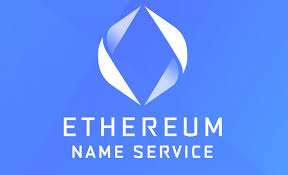Latest News
- ENS founder warns of Google spoof that tricks users with a fake subpoena
- ENS Lead Developer Reveals Flaw Allowing Phishers to Mimic Official Google Alerts
- Google vulnerability enables convincing phishing attack targeting crypto users
- Phishing scammers now exploiting Google’s infrastructure to target crypto users
Current Price
The current price of ENS is $14.15042
Introduction
The Ethereum Name Service (ENS) represents a significant evolution in the way users interact with blockchain technology, transforming complex Ethereum addresses into accessible, human-friendly names.
By leveraging smart contracts, ENS guarantees secure and decentralized domain ownership, while also allowing for the management of multiple digital assets under a single identity.
However, alongside its advantages, the service is not without its challenges, including issues related to network congestion and the potential for domain squatting.
Understanding these nuances is essential for anyone considering the implications of ENS in the broader context of blockchain usage.

Quick Overview
- ENS is a decentralized naming system that converts complex Ethereum addresses into user-friendly names, enhancing transaction efficiency and reducing errors.
- Built on the Ethereum blockchain, ENS ensures secure domain ownership and mitigates risks of hacking and censorship through decentralized management.
- Users can register .eth domains to manage multiple digital assets, facilitating streamlined interactions across decentralized applications (dApps) and decentralized finance (DeFi).
- Potential drawbacks include network congestion, learning curves for new users, and risks of domain squatting, impacting broader adoption.
- The future of ENS looks promising with increased adoption, enhanced usability, and ongoing technological upgrades for improved security and scalability.
What Is Ethereum Name Service?
Although blockchain technology has revolutionized various sectors, the Ethereum Name Service stands out as a pivotal innovation within the Ethereum ecosystem. ENS operates as a decentralized naming system that translates human-readable domain names into machine-readable Ethereum addresses, facilitating seamless interactions with smart contracts and decentralized applications (dApps).
By employing a distributed ledger, ENS eliminates the need for centralized control, thereby enhancing security and reducing the risk of censorship.
The service utilizes the Ethereum blockchain’s infrastructure to guarantee that ownership and transfer of domain names are transparent and verifiable. ENS enables users to register .eth domain names, which can serve multiple functions, including wallet addresses, decentralized websites, and even metadata storage.
This flexibility addresses significant limitations inherent in traditional domain name systems, such as vulnerability to hacking and administrative overreach.
How ENS Works
Understanding how ENS operates requires delving into its underlying architecture and processes. ENS functions as a decentralized domain name system built on the Ethereum blockchain, allowing users to associate human-readable names with Ethereum addresses, thereby simplifying user interactions with the network.
The system is governed by smart contracts, which facilitate the management of domain names and their associated resources.
The operation of ENS can be broken down into four key components:
- Registry: The core contract that maintains a record of all registered domain names and their resolvers.
- Resolver: A contract that translates domain names into the corresponding Ethereum addresses or other resources, enabling seamless interactions.
- Registrar: A contract responsible for managing the registration process, including the allocation of domain names and their renewal.
- Subdomains: ENS allows for the creation of subdomains, enabling users to create a hierarchy of names under a primary domain, enhancing organizational flexibility.
Through these interconnected components, ENS guarantees secure, efficient, and user-friendly naming conventions within the Ethereum ecosystem, fostering broader adoption and usability of decentralized applications.
Key Features of ENS
ENS offers several key features that enhance its functionality and user appeal.
Significantly, it simplifies address management, allowing users to replace complex wallet addresses with human-readable names.
Additionally, ENS provides decentralized domain ownership, which contributes to an improved user experience in the blockchain ecosystem.
Simplified Address Management
Ethereum Name Service (ENS) revolutionizes the way users manage their digital addresses by offering a user-friendly interface that simplifies the complexities of blockchain interactions. By abstracting the lengthy hexadecimal addresses typically associated with Ethereum transactions, ENS provides a more intuitive alternative that enhances user experience and reduces the potential for errors.
Key features that contribute to this simplified address management include:
- Human-readable names: ENS allows users to register names like “example.eth,” making it easier to send and receive transactions without memorizing complex strings.
- Multi-currency support: ENS can be used with various cryptocurrencies, allowing users to manage multiple digital assets under a single name.
- Address linking: Users can link their ENS names to various addresses, including wallets, decentralized applications, and smart contracts, streamlining the process of managing multiple accounts.
- Subdomain creation: ENS enables users to create subdomains, offering a structured way to organize and manage multiple addresses under one primary domain.
These features collectively enhance the usability of Ethereum, making it more accessible to both novice and experienced users in the blockchain ecosystem.

Decentralized Domain Ownership
Decentralized domain ownership represents a fundamental shift in how digital identities are managed within the blockchain ecosystem, and Ethereum Name Service (ENS) exemplifies this change. ENS allows users to register human-readable domain names that map to Ethereum addresses, smart contracts, and other resources, thereby eliminating the need for centralized authorities. This system leverages the Ethereum blockchain’s inherent security and transparency, ensuring that ownership records are immutable and publicly verifiable.
Key features of ENS include its use of ERC-721 non-fungible tokens (NFTs) to represent domain ownership, which grants users complete control over their digital identities. By utilizing a decentralized model, ENS mitigates risks associated with domain hijacking and censorship, as ownership is secured through cryptographic keys rather than traditional registrars.
Additionally, ENS domains can be transferred or sold without intermediary involvement, exemplifying true ownership. The governance of ENS is community-driven, allowing stakeholders to influence protocols and policies. This decentralized approach not only fosters innovation but also enhances trust among users, as decisions are made collectively rather than by a centralized entity.
Enhanced User Experience
Revolutionizing the way users interact with blockchain technology, the Ethereum Name Service (ENS) offers a suite of key features designed to enhance user experience considerably. ENS effectively bridges the gap between complex blockchain addresses and user-friendly naming conventions, making decentralized applications more accessible.
Key features of ENS that contribute to this enhanced user experience include:
- Human-Readable Addresses: ENS transforms long, cumbersome Ethereum addresses into easily memorable names, reducing the potential for user error during transactions.
- Decentralized Management: Users retain full control over their names and associated resources, fostering trust and security while mitigating risks associated with centralized domain management.
- Interoperability: ENS integrates seamlessly with various decentralized applications, allowing users to engage across multiple platforms without the need for multiple addresses.
- Flexible Naming System: ENS supports both traditional domain formats and innovative features like subdomains, empowering users to create a personalized naming structure that meets their unique needs.
Benefits of Using ENS
When considering the advantages of utilizing the Ethereum Name Service (ENS), one quickly recognizes its capacity to streamline online interactions within the blockchain ecosystem. ENS transforms complex alphanumeric addresses into user-friendly domain names, thereby reducing the potential for errors during transactions. This enhanced readability considerably improves user engagement, particularly for those less familiar with blockchain technology.
Moreover, ENS operates on a decentralized framework, which guarantees that domain ownership is secure and resistant to censorship. Users retain control over their domain names without reliance on intermediaries, fostering a trustless environment conducive to digital asset management.
The protocol’s integration with various decentralized applications (dApps) further amplifies its utility by enabling seamless navigation and interoperability across platforms.
Additionally, ENS supports multiple cryptocurrency addresses under a single domain, allowing users to consolidate their digital identities. This capability not only simplifies the management of assets but also enhances the overall efficiency of cryptocurrency transactions.
Potential Drawbacks of ENS
While the Ethereum Name Service (ENS) presents numerous advantages, it is essential to contemplate certain potential drawbacks that may impact user experience and adoption. These limitations can influence the decision-making process for individuals and organizations considering integrating ENS into their operations.
- Cost of Registration: The fees associated with registering an ENS domain can be a barrier for some users, particularly in a volatile cryptocurrency market. The costs can fluctuate based on Ethereum gas prices, making budgeting challenging.
- Complexity of Use: Although ENS aims to simplify interactions with Ethereum addresses, the initial setup and management of ENS domains may still pose a learning curve for non-technical users, potentially hindering widespread adoption.
- Dependence on Ethereum Network: ENS relies on the Ethereum blockchain, which may experience congestion or high transaction fees during peak times, impacting the reliability and speed of domain-related transactions.
- Security Concerns: As with any decentralized service, ENS is susceptible to phishing attacks and unauthorized access, necessitating users to adopt rigorous security measures to protect their assets.
These drawbacks warrant careful consideration for potential users and stakeholders in the Ethereum ecosystem.
Use Cases for ENS
Numerous use cases for the Ethereum Name Service (ENS) illustrate its versatility and potential to enhance various applications within the blockchain ecosystem.
Primarily, ENS serves as a user-friendly alternative to Ethereum addresses, enabling users to replace complex hexadecimal strings with easily memorable names. This functionality greatly simplifies transactions, reducing the risk of errors associated with address entry.
Furthermore, ENS can be leveraged for decentralized applications (dApps) by providing human-readable identifiers that enhance user experience. For instance, dApps can utilize ENS to create unique identifiers for users, enabling seamless interactions across multiple platforms without the need for additional account management.
Another significant application is in the domain of decentralized finance (DeFi). By integrating ENS, DeFi protocols can streamline liquidity provision and asset management, as users can easily designate wallet addresses for transactions, lending, or borrowing activities.
Moreover, ENS is applicable in the non-fungible token (NFT) space, where it allows creators to associate their digital assets with recognizable names, fostering brand identity and recognition.
Getting Started With ENS
As the utility of Ethereum Name Service (ENS) continues to expand across various applications, understanding how to effectively utilize this system becomes paramount for users and developers alike.
ENS simplifies the process of interacting with Ethereum addresses by replacing long hexadecimal strings with human-readable names.
To get started with ENS, users should follow these essential steps:
- Create a Wallet: Select a compatible Ethereum wallet, such as MetaMask or Trust Wallet, that supports ENS integration.
- Connect to the ENS App: Navigate to the official ENS application, ensuring to connect your wallet to the platform seamlessly.
- Search for Your Domain: Utilize the search function to determine the availability of your desired domain name, considering various extensions like .eth.
- Register Your Domain: Once a domain is selected, follow the registration process, which typically involves paying a gas fee and setting the desired duration for the domain ownership.
Future of Ethereum Name Service
The future of the Ethereum Name Service (ENS) appears promising as its adoption and integration into the broader blockchain ecosystem continue to grow. As decentralized applications (dApps) proliferate, the need for user-friendly address systems becomes increasingly critical. ENS addresses this challenge by translating complex Ethereum addresses into human-readable names, thereby enhancing usability and accessibility.
Moreover, the increasing interest in decentralized finance (DeFi) and non-fungible tokens (NFTs) augments ENS’s relevance. By providing a standard naming system, ENS facilitates seamless interactions across various platforms, reducing the barriers for new users entering the blockchain space.
Future developments may include enhanced interoperability with other blockchains, improving cross-chain functionality, and creating a more unified decentralized identity.
Technologically, the ENS protocol is poised for upgrades that could improve security and scalability, essential for sustaining high transaction volumes and user demand. Additionally, the potential integration of ENS with Web3 initiatives could further solidify its role as a foundational component of a decentralized internet.
Frequently Asked Questions
How Can I Purchase an ENS Domain Name?
To purchase a domain name, identify a registrar that supports the desired naming system. Complete the registration process by providing necessary details, selecting a name, and fulfilling payment requirements to secure ownership of the domain.
Can I Transfer My ENS Domain to Another Wallet?
Yes, transferring an ENS domain to another wallet is possible. This process requires the current owner to initiate a transfer via the Ethereum blockchain, ensuring proper gas fees are paid for successful completion of the transaction.
Are ENS Domains Compatible With Other Blockchain Platforms?
ENS domains are primarily designed for the Ethereum blockchain; however, compatibility with other blockchain platforms depends on specific implementations and support for the Ethereum Name Service protocol, which may vary across different systems and technologies.
What Happens if I Forget My ENS Domain Password?
Forgetting the password associated with a domain can result in loss of access and control over the domain. Recovery options typically involve seed phrases or backup methods, emphasizing the importance of secure password management practices.
Is There a Renewal Fee for ENS Domain Names?
Yes, there is a renewal fee for domain names registered through blockchain services. This fee guarantees continued ownership and management of the domain, typically charged annually, reflecting the operational costs associated with maintaining the decentralized infrastructure.
Wrapping Up
To sum up, the Ethereum Name Service (ENS) represents a significant advancement in the usability and accessibility of blockchain technology.
By facilitating human-readable names for complex Ethereum addresses, ENS enhances user experience and integration with decentralized applications. Despite its advantages, challenges such as network congestion and domain squatting necessitate ongoing improvements and strategic management.
The future of ENS is poised for growth, driven by increasing adoption and the evolving landscape of decentralized digital assets.
